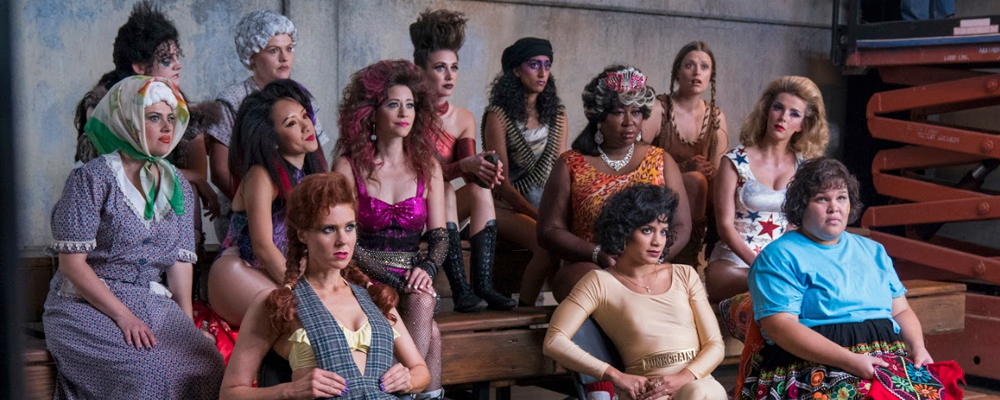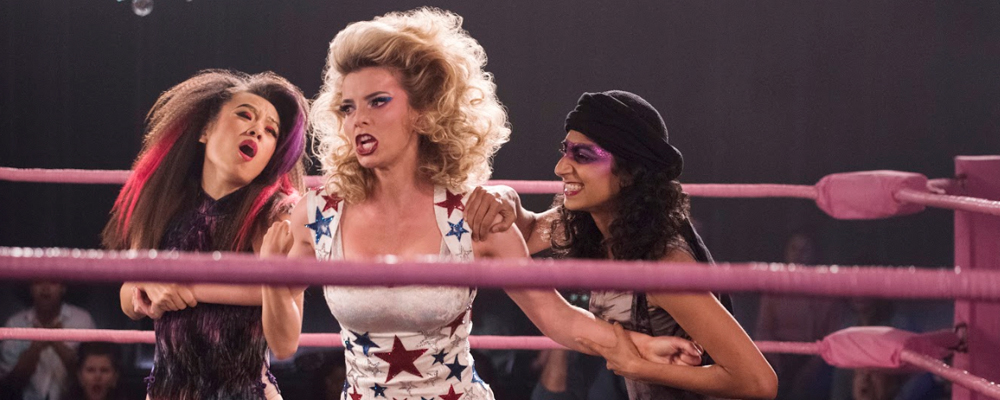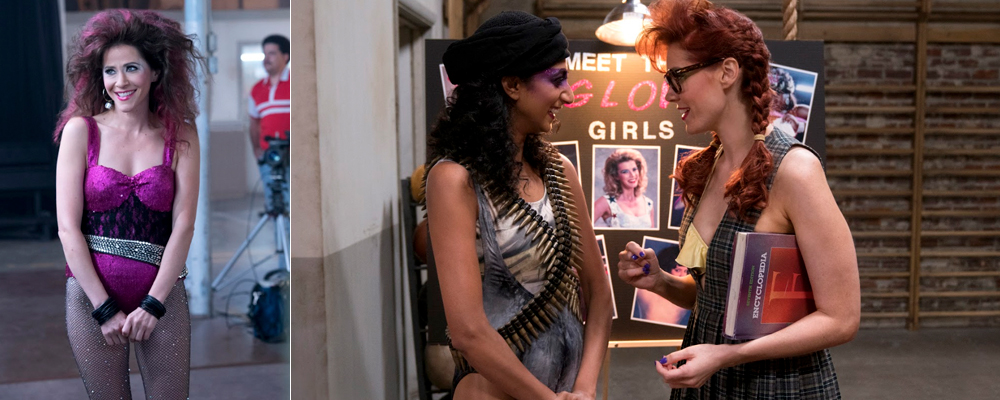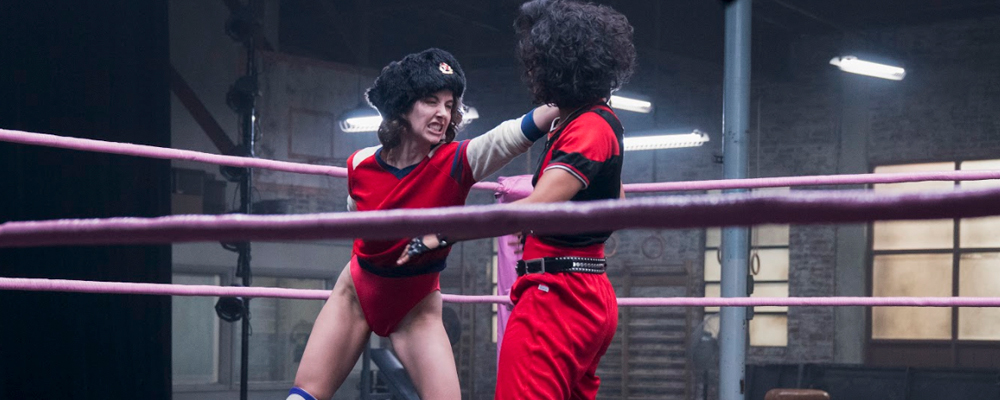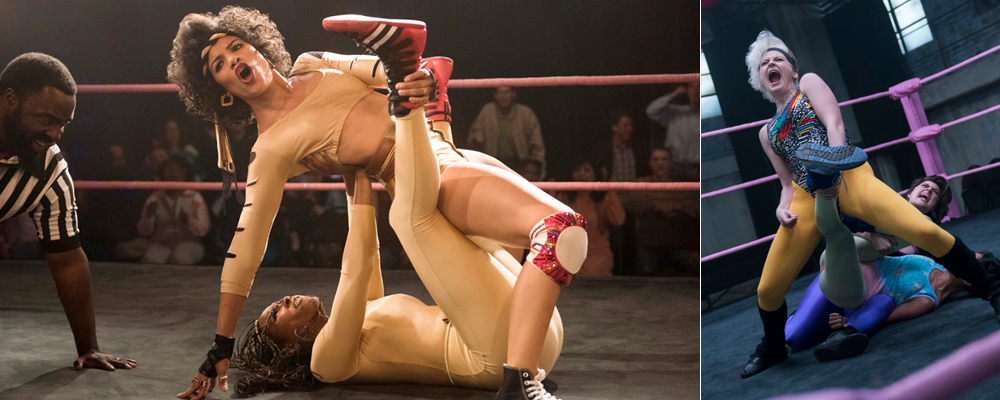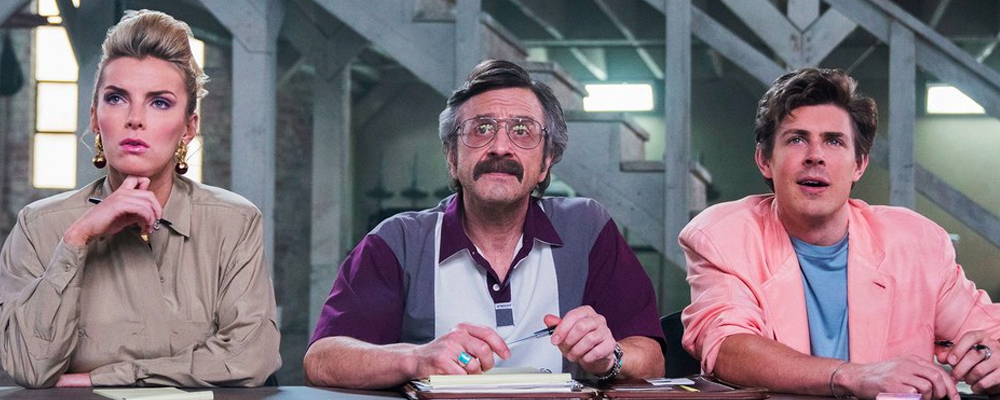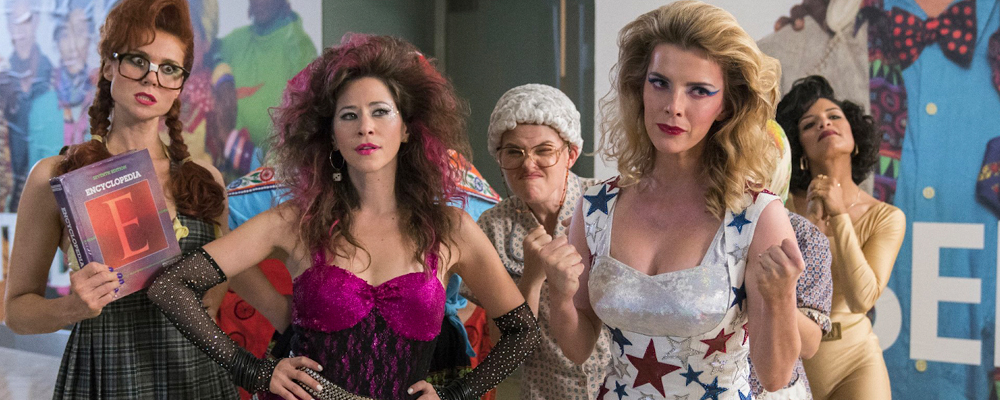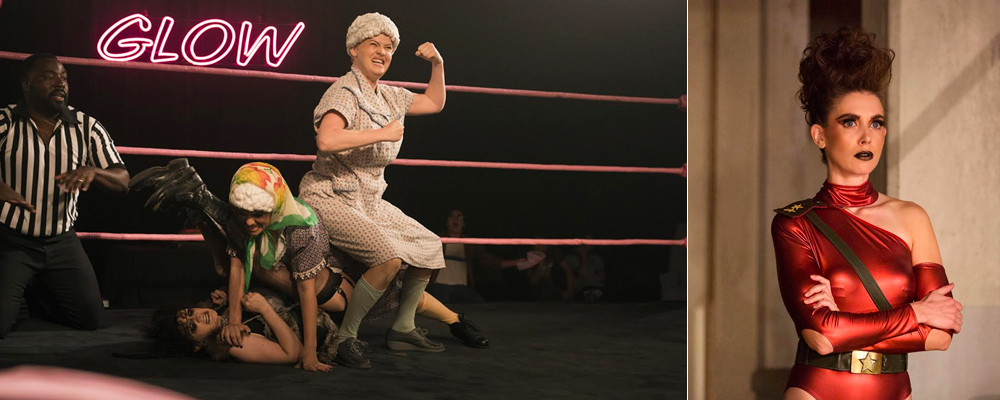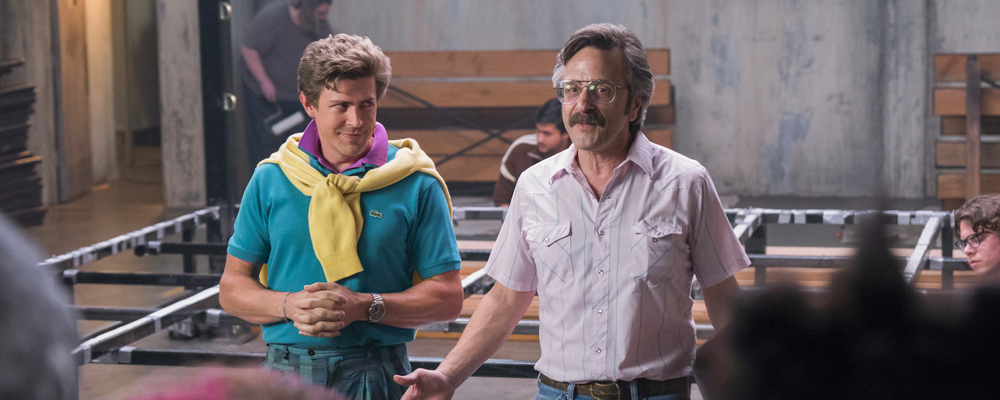‘GLOW’ Season 2 Tackles Timely Issues While Wrestling With Friendship and Showbiz
Adi Mehta
One of the most fun original shows on Netflix is back. “GLOW ” jumps back into the 1980s with a wonderful combination of nostalgia, comedy and simple human stories. Its second season continues the saga of our favorite wrestling troupe as they bask in local celebrity while dealing with their inner dynamics and group conflicts. What makes “GLOW” quite special is how it takes a quirky premise and turns it into an endearing portrait of the hassles of wanting to be an artist. It hurtles forward with great energy and a sense of female empowerment that is timely and necessary.
We’re back in the San Fernando Valley, where the Gorgeous Ladies of Wrestling are trying to make something out of their cult status as a TV curiosity. Still relegated to a local station, they are busy putting together another season of their wrestling program. As with any creative venture, there are clashes of wills and ideas. Sam (Marc Maron) is still a grump, directing and “envisioning” the show with his fragile ego. In the season’s first episode a running storyline is how Ruth (Alison Brie) is eager to have more of a helpful, creative role in producing the show, but Sam will have none of it, stomping on her suggestions (“is anyone confused about who the director is?”). There’s a new addition to the wrestling group as well, Yolanda (Shakira Barrera), a Mexican the girls mistake for their wardrobe lady. She is replacing Cherry from the last season, to everyone’s somewhat unease. But they will have to all get along because the new season of the show promises more drama in addition to epic matches.
“GLOW” is simply a pure delight to watch. It is both a celebration of 80s culture and the experience of being part of a group. The wrestling matches are deliriously fun, especially because they are always shot with real gusto and rib-nudging humor, but the real spirit of the show is our desire to be a part of something special. Ruth in particular stands out this season, confessing that she takes it all so seriously, to the point of alienating friends, because this little show gives her a sense of purpose. “GLOW” is made for anyone who has ever tried to be in a theater group, or an indie film crew or small newspaper staff, anywhere where a small band of individuals try to make something. When Sam hands everyone their new contract, Debbie (Betty Gilpin) sneaks it off to her “agent” in order to get a bigger deal (and producing credit). The ensuing scene is full of great humor as Sam looks at Debbie as she reveals she isn’t asking for the credit, “I am a producer.” There are winks at old industry habits, such as when Yolanda, who adopts the stage name, Yo-Yo, reveals she got the job after giving Sam a lap dance at the club where she works. Ruth takes the group to a mall to shoot a promo which she hopes Sam will like. It’s done in great, 80s vintage fashion but of course Sam hates it. These moments are just as fun as any of the matches, although in this season Sam’s plans include having Liberty Belle take on Welfare Queen to reclaim her title. For movie buffs Sam snarls the great line at Ruth, “if you wanna be Alma Hitchcock, go make everyone feel special so I don’t have to.” In the current, post-hashtag Me Too climate, these elements in the story take on a special resonance, especially because what was so common coin in the 1980s would be unacceptable today. The women of “GLOW” become striking examples of the struggle of women to be respected and heard within a creative environment dominated by males.
“GLOW” is not all antics however, and part of its charm is how it combines its energy with personal narratives we want to follow. This season the relationships involving Sam become more complex and insightful. It slowly becomes clear that one reason he is so annoyed with Ruth is because of possible, complicated feelings he might be harboring for her. Sam is also dealing with a much more personal journey involving his daughter Justine (Britt Baron). The director may be ruthless with his cast, but when he comes home and finds Justine stinking up the place, making t-shirts for a rock band, he lets it slide. Every beast has his soft spot. The characters of “GLOW” are all written with their own, particular individual traits which make the whole team dynamic that much more engaging. Kate Nash is a fantastic, strutting presence as Rhonda, the British member of the wrestling group who stands above everyone as having the biggest brains.
For pop culture aficionados there are references and winks galore in this season. “GLOW” is a virtual nirvana for those who wish the Reagan era never ended. From the synth soundtrack combined with pop hits, to the clothes and dialogue, the show is still wonderful because of how authentic it feels. Ruth tries to boost morale by singing the theme from “The Mary Tyler Moore Show.” Someone mentions the theme to “Cheers” by Vicky the Viking (Marianna Palka) has no idea what that is, so Sheila (Gayle Rankin) helpfully (and wrongfully) explains that, “It’s about an invisible woman named Vera.”
Get your 80s wrestling fix with “GLOW,” but enjoy it for its human touch as well. It is refreshing to see a show led by a great female cast, but which has a universal appeal to anyone who has ever found themselves inside a larger clique. This is still a great show about how teamwork is quite hard, fulfilling, violent and frustrating, all at the same time.
“GLOW” season two premieres June 29 on Netflix.

